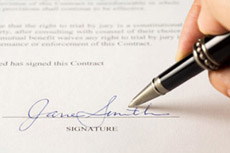Unsecured Loans for Salaried and Self-Employed Professionals
Unsecured loans are offered to trustworthy customers with a good payment and credit history. There are income, age, and other requirements to qualify. Applicants should be of legal age, and financial institutions request a photo ID, driver’s license, passport or another document to prove this. The borrower’s monthly income is also taken into account to determine the loan amount (how much they can repay on a monthly basis). Financial institutions accept other sources of income as well, including child support, disability benefits, rental and investment income, dividends, and others. Reporting additional sources of income boosts one’s chances to obtain a loan at a lower interest rate. If you have a part-time job, make sure you report this. Banks usually require that applicants bring a copy of their most recent pay stub. Borrowers who apply with a co-signer or co-applicant should present their recent pay stubs as well. Financial institutions also request a copy of bills due if the applicant considers bill consolidation. An important requirement is that the borrower has a savings or checking account. If approved, the bank will make a direct deposit to the applicant’s checking account. In many cases, financial institutions make automatic withdrawals when payment is due.
Self-employed Individuals

The monthly payment is up to 30 percent of the applicant’s total income. This allows borrowers to cope with emergencies and unexpected circumstances. It is important that applicants have provable and steady incomes. This requirement applies to salaried employees and workers. Self-employed individuals should present their tax receipts. Since their income and profits vary (they have an unstable income), financial institutions may request additional proof. Self-certification is one way to do this. The borrower’s accountant signs a certificate which proves that he has a sufficient income to make monthly payments. This option is for self-employed persons with an excellent or very good credit score. Some financial institutions offer flexible loans with attractive terms. For example, they may accept underpayment and overpayment. Payment holidays are also offered to self-employed individuals. This allows borrowers to skip payments after paying regularly during a certain period of time.
Types of Loans
There are two types of unsecured debt – personal and business loans. The first type is offered to individual borrowers and includes car, student, payday, and other loans. Individual borrowers can use the money to buy a vehicle, go on vacation, pay tuition and board, make home improvements, etc. Payday loans are short-term financing offered by financial companies. While traditional financial institutions run a credit check, payday lenders offer loans to borrowers with fair and poor credit. Interest rates are very high. Some scam companies also offer advance-fee loans. They ask borrowers to send a fee in advance and then disappear.
Unsecured business loans are offered to corporations and small businesses. Companies use the financing to purchase machinery and equipment, raw materials and supplies, etc. Businesses usually apply for unsecured loans to expand their operations. This is possible if the company has positive forecasting and cash flow and profits. Companies that need equipment have two options – they can lease or buy machinery. There are benefits to purchasing equipment, and one is that it depreciates. Moreover, companies are allowed to take a tax write-off and can sell the equipment during its useful life. These loans come with a term of up to 15 years.
Reasons to Apply
Other reasons to apply for an unsecured business loan are to increase the company’s working capital and to buy inventory. There are seasonal businesses such as farms and companies operating in the retail sector. They often apply for a short-term loan before the start of the season. Another option is to apply for a loan to cover the company’s working capital requirements and finance its day-to-day operations. This type of loan is riskier for banks and comes with a higher rate of interest.
In fact, unsecured loans almost always come with a higher interest rate because collateral is not required. Banks face a higher risk because the loan is not backed by some asset they can seize in case of default. This is why, they rely on the borrower’s payment history to assess his creditworthiness. There are companies that offer unsecured loans to borrowers with bankruptcies, arrears, no and poor credit, but these entities are usually non-traditional loan providers.
Related Articles
Business Loans for Women to Help Them Achieve Their Entrepreneurial Goals
Business loans for women are offered by banks, finance companies, and under different government programs. Some loans are offered for specific purposes, including financing for the purchase of equipment, real estate, and other major assets. Government agencies work with local partners that offer...
Types of Credit for Consumer Purchases and Business Expansion
Credit refers to a contract between a bank or another entity and a borrower that enables the latter to receive money, services, or goods in exchange for a repayment within a specified period of time. Borrowers have to pay back the outstanding balance, along with the interest charges that apply....
Types of Secured and Unsecured Personal Loans
Personal loans are offered to individual borrowers rather than companies and corporations. Financial institutions such as commercial banks, credit card companies, savings and loan associations, and credit unions offer financing. Loans come in the form of unsecured and secured debt. Loan TypesThe...
Types of Unsecured Debt Offered to Individual and Business Borrowers
The term unsecured debt refers to a loan offered by a financial institution and not backed by collateral. If the borrower is unable to keep up with payments, the bank has to file a lawsuit to get the money back. Financial establishments face a higher risk when the loan is not backed by some asset....
